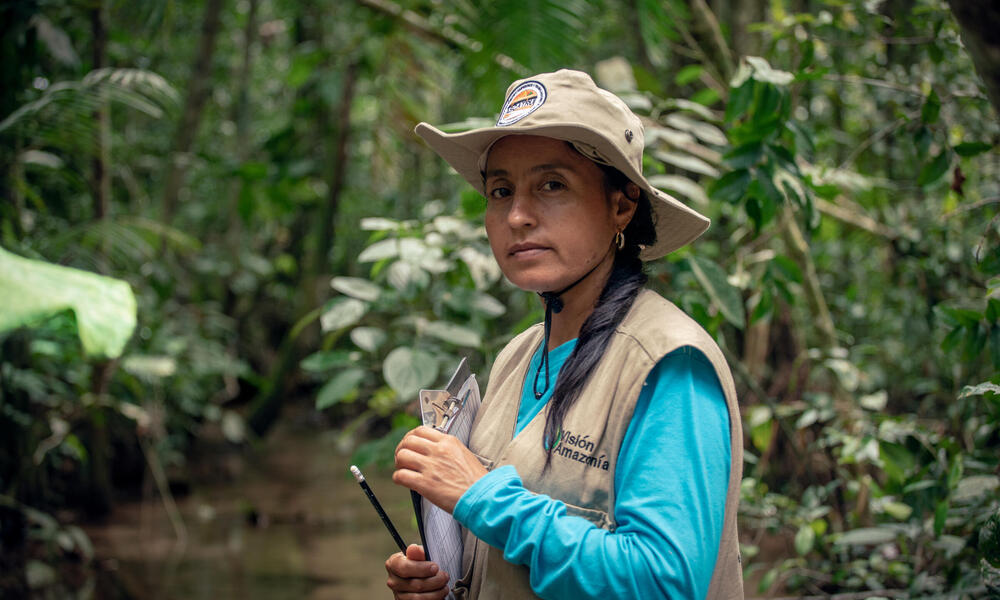When Marisela Silva Parra first started exploring the forests near her home in Calamar, Colombia, on the northernmost edge of the Colombian Amazon, it didn’t sit well with her husband. “Love, you know what you have at home,” he would say, asking her to stay.
Silva, 41, is the only female member of a WWF-supported group of local farmers and community leaders who are helping their community realize the value of its natural resources. The group calls themselves Los Exploradores—The Explorers.
Working in twos and threes, The Explorers secure permission to document the forested areas, flora, fauna, and water sources on local farms. “Some people don’t realize the value of the resources they have,” Silva says.
Like her husband, the other women in her community initially disapproved that she was spending time with a group of men and away from her family. “A lot of women said I shouldn’t be doing it, that, because I have to go to meetings and do things, I will lose my husband, I will lose my children,” she says.
But Silva was undeterred. “There is a correlation between wanting to and being able to,” she says.
Even as a schoolgirl, she says she knew her own mind: “I always said what I thought, and what I liked and didn’t like or want.”
